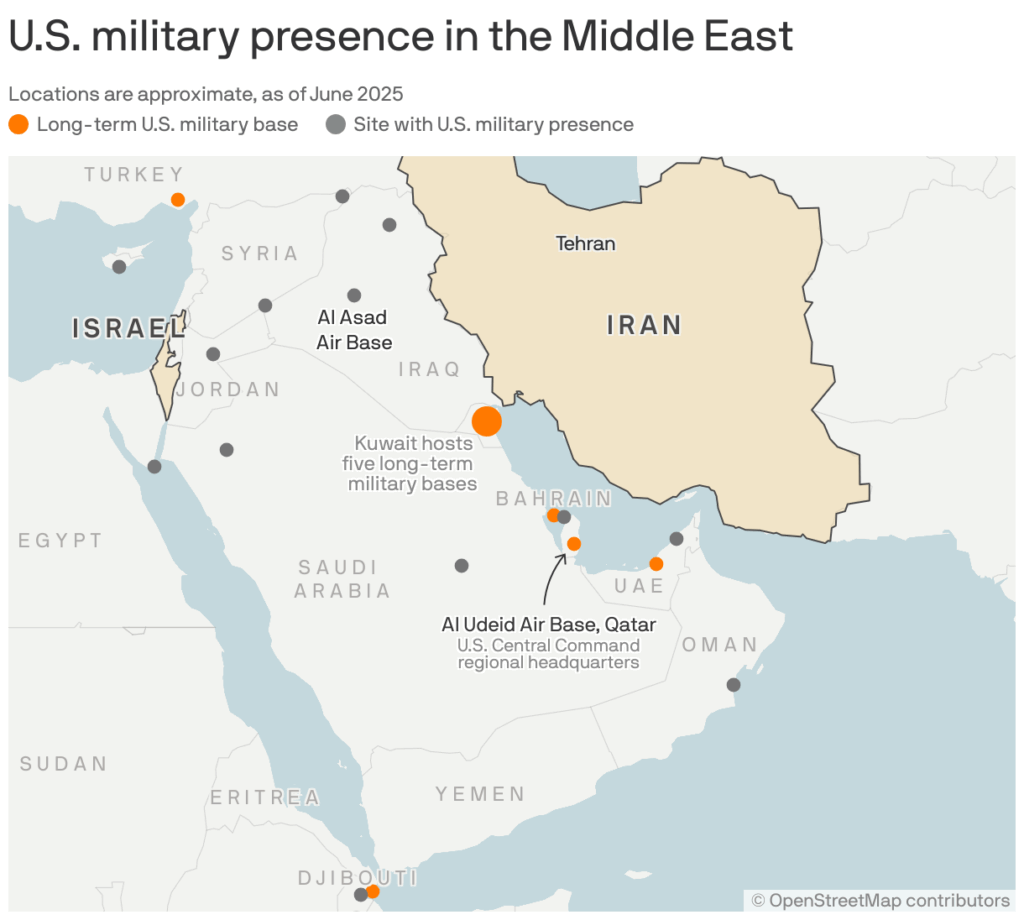DOHA (Realist English). Iran confirmed on Monday it launched a missile strike against the U.S. military’s Al Udeid Air Base in Qatar, marking a significant escalation following American attacks on Iranian nuclear facilities over the weekend.
According to Iranian officials, the strike was coordinated with Qatari authorities and intended as a proportional response. A statement from Iran’s Supreme National Security Council said the number of missiles fired matched the number of bombs used in the U.S. operation on Saturday. Tehran emphasized that the missiles targeted an area far from civilian infrastructure, and that the attack posed “no threat to our brotherly nation, Qatar, or its noble people.”
A U.S. defense official confirmed to Axios that Al Udeid — the largest U.S. military installation in the Middle East and headquarters of U.S. Central Command — was struck by short- and medium-range ballistic missiles originating from Iranian territory. “At this time, there are no reports of U.S. casualties. We are monitoring this situation closely,” the official said.
Qatar’s Ministry of Foreign Affairs swiftly condemned the attack, stating that its air defenses successfully intercepted the incoming missiles. No injuries or damage were reported, and Qatari authorities reiterated calls for an immediate return to negotiations to avoid further escalation.
The Iranian Revolutionary Guard Corps (IRGC) described the attack as a “devastating and powerful” operation against what it called “the largest strategic hub of the U.S. terrorist army in West Asia.” The IRGC vowed that any violation of Iran’s sovereignty would be met with force, underlining Tehran’s resolve to respond to perceived threats.
The incident occurred just hours after Qatar temporarily closed its airspace, citing regional instability. Bahrain and the United Arab Emirates followed suit after the attack. The U.S., U.K. and China have advised their nationals in Qatar to shelter in place as a precautionary measure.
President Donald Trump convened his national security team at the White House, including Defense Secretary Pete Hegseth and Joint Chiefs Chairman Gen. Dan Caine, as the attack was underway. The president had warned earlier that any retaliation by Iran would trigger “a far greater response” than the initial U.S. strikes on Iran’s nuclear infrastructure.
The response from Washington will likely depend on the scale of damage and the perception of intent. Iran’s effort to frame the strike as symbolic and non-lethal suggests a calibrated move to assert strength without provoking a wider conflict — though whether that will satisfy the U.S. remains uncertain.
This missile strike marks a turning point in the confrontation between Iran and the United States, shifting the conflict beyond proxy engagements. While Tehran framed the attack as limited and de-escalatory, the fact that it directly targeted a U.S. base — with coordination from a Gulf ally — reveals a bold recalibration in regional power dynamics. The coming hours may determine whether this becomes a contained tit-for-tat or spirals into a wider war.
